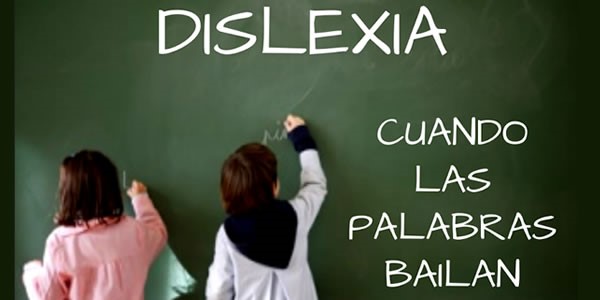 A language disorder that manifests as a significant and persistent difficulty in learning to read and write and sometimes in calculation. «Dyslexia affects 15% of the population or 700 million people in the world. In a class of 20 students we will find three or four children with dyslexia. This difficulty causes 40% of school failure worldwide.
A language disorder that manifests as a significant and persistent difficulty in learning to read and write and sometimes in calculation. «Dyslexia affects 15% of the population or 700 million people in the world. In a class of 20 students we will find three or four children with dyslexia. This difficulty causes 40% of school failure worldwide.
The dyslexic has a visual thinking, so often these children can learn many skills faster than the rest of the people. It is estimated that image thinking is 400 to 2,000 times faster than verbal thinking. A person can have between two and five thoughts, while the dyslexic has 32.
These students are not retarded or slow, on the contrary, they generally have a level of intelligence above average. What happens is that their brains process information in a different way. They need patience and understanding.
- Signs and symptoms of dyslexia
 Dyslexia affects people in different degrees, and therefore the symptoms may differ from one child to another. Generally, these symptoms manifest as problems with accuracy and fluency in reading and spelling. But in some children, dyslexia can also affect writing, math, and language.
Dyslexia affects people in different degrees, and therefore the symptoms may differ from one child to another. Generally, these symptoms manifest as problems with accuracy and fluency in reading and spelling. But in some children, dyslexia can also affect writing, math, and language.
A key indication of the presence of dyslexia in children is having trouble decoding words. This is the ability to match the letters with their sounds and then use them to read words with precision and fluency.
One reason why children have difficulty decoding is that they often have problems with a language skill that is more basic called phonological awareness. This is the ability to recognize individual sounds in words. The problem with this skill can manifest themselves from preschool. Find out how phonological awareness, phonemic awareness and phonics are related.
- How to help them?
 Raising a child with dyslexia is a journey. As you progress, you gain knowledge about your child’s difficulties with reading and the many ways to contain it. Dyslexia is a lifelong condition, but there are supports, teaching methods and strategies to help you overcome obstacles.
Raising a child with dyslexia is a journey. As you progress, you gain knowledge about your child’s difficulties with reading and the many ways to contain it. Dyslexia is a lifelong condition, but there are supports, teaching methods and strategies to help you overcome obstacles.
It is the speech therapist one of the professionals in charge of solving your doubts, provide explanations to your concerns, offer dialogue and create a climate of cooperation in which all the environment can and should participate (family, professionals and school).
The speech therapy intervention will always be individualized and focused on the development of skills and processes involved in reading and writing, the components of cognitive development, perceptual, motor and executive functions; all this based on the strong points, to develop the weak.
The contents with which they must work are studied carefully and are adapted to the needs according to the evolution. The tools must be attractive, varied and imaginative to make each session a useful and fun moment, in which your interest is maintained.
The intervention process is long, but if properly intervened, the prognosis is encouraging, children manage to alleviate their difficulties and improve their performance. The success of the intervention is greater the sooner you intervene
The person who evaluates your child will do a series of tests for dyslexia. It will also evaluate you in other areas to determine exactly where your deficiencies are. A psychologist will also check if other difficulties are present that could affect their learning, such as ADHD. This is another difficulty that often coexists with dyslexia. Some children with learning and attention difficulties may also have anxiety or





Leave a Reply